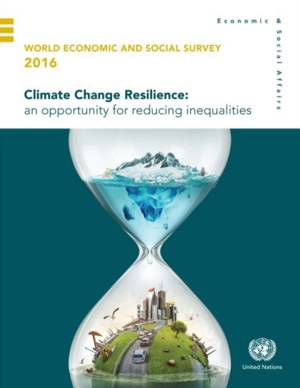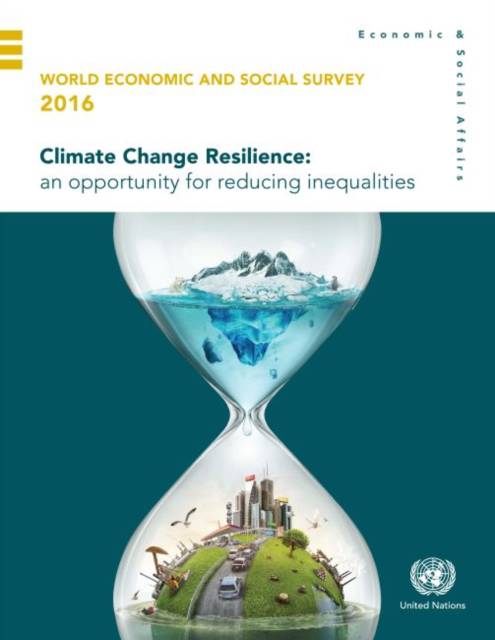
- Afhalen na 1 uur in een winkel met voorraad
- Gratis thuislevering in België vanaf € 30
- Ruim aanbod met 7 miljoen producten
- Afhalen na 1 uur in een winkel met voorraad
- Gratis thuislevering in België vanaf € 30
- Ruim aanbod met 7 miljoen producten
Zoeken
World Economic and Social Survey
2016: Climate Change Resilience - An Opportunity for Reducing Inequalities
United Nations: Department of Economic and Social Affairs
Paperback | Engels
€ 80,95
+ 161 punten
Omschrijving
This edition of the World Economic and Social Survey contributes to the debate on the implementation challenges of the 2030 Agenda for Sustainable Development. In addressing the specific challenge of building resilience to climate change, the Survey focuses attention on the population groups and communities that are disproportionately affected by climate hazards. It argues that, in the absence of transformative policies which coherently address the economic, social and environmental dimensions of development, building climate resilience will remain elusive and poverty and inequalities will worsen. To the extent that the differential impact of climate hazards on people and communities is determined largely by the prevalence of multiple inequalities in respect of the access to resources and opportunities, policies aimed at building climate resilience provide an opportunity to address the structural determinants of poverty and inequality in their multiple dimensions.
Specificaties
Betrokkenen
- Auteur(s):
- Uitgeverij:
Inhoud
- Aantal bladzijden:
- 176
- Taal:
- Engels
Eigenschappen
- Productcode (EAN):
- 9789211091748
- Verschijningsdatum:
- 14/11/2016
- Uitvoering:
- Paperback
- Formaat:
- Trade paperback (VS)
- Afmetingen:
- 216 mm x 277 mm
- Gewicht:
- 521 g

Alleen bij Standaard Boekhandel
+ 161 punten op je klantenkaart van Standaard Boekhandel
Beoordelingen
We publiceren alleen reviews die voldoen aan de voorwaarden voor reviews. Bekijk onze voorwaarden voor reviews.











